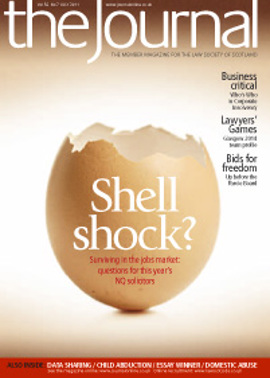Lenders in the shade

A “shadow director” in relation to a company is a person in accordance with whose directions or instructions the directors are accustomed to act, but a person is not to be regarded as a shadow director by reason only that the directors act on advice given by him in a professional capacity (Companies Act 2006, s 251, restating without change the 1985 Act definition).
Section 223 applies various provisions of the Act, which require shareholder approval to transactions by directors, to a shadow director as if he were a director. Of much more concern, particularly when companies are facing financial challenges, is the extent to which a lender or creditor acting in its own interests can exercise influence on the directors without being classified as a shadow director. A recent Australian case on similar legislation provides some guidance and assistance.
Buzzle puzzle
In July 2000, six retailers of Apple products merged to create a company called Buzzle, which acquired stock from Apple on credit, granting Apple a charge over its assets. Buzzle became insolvent but continued to trade, incurring additional debts of $A18,000,000 to Apple and other creditors and making approximately $A12,000,000 of early debt repayments to Apple. When Apple got wind of Buzzle’s cash flow difficulties, it installed one of its senior finance officers to advise Buzzle on its systems. It was common ground that Buzzle’s directors generally heeded that advice.
Buzzle went into liquidation and the liquidators brought proceedings against Apple and its finance officer. On appeal, the issues included whether Apple was liable for Buzzle’s insolvent trading because Apple and its officer were shadow directors at the time when Buzzle was insolvent and incurring debt.
The relevant section of the Australian Corporations Act defined a shadow director as a person “not validly appointed as a director if... the directors of the company are accustomed to act in accordance with the person’s instructions or wishes”. The New South Wales Court of Appeal ([2011] NSWCA 109, 9 May 2011) upheld the first instance decision that, notwithstanding Apple’s influence, Buzzle was not accustomed to act in accordance with its directions or wishes and accordingly, Apple was not a shadow director.
The following useful points can be gleaned from the decision:
- A person is not a shadow director merely because he imposes conditions on his commercial dealings with a company, even if the company feels it has no choice but to comply. Without more, such conditions do not amount to “instructions or wishes”, because the directors are free (and expected) to exercise independent judgment as to whether it is in the company’s interest to comply with the proposed terms.
- This is particularly so if the person imposing the conditions is a secured creditor and the conditions are supported by the terms of the loan agreement.
- Advice given in a non-professional capacity can amount to “instructions or wishes”, but not every person whose advice, instructions or wishes are heeded is a shadow director. There requires to be present in addition: (1) a causal connection between the “instructions or wishes” and the company’s actions: if a company intended to do something, the mere fact that it did so after a third party expressed a wish to that effect, would not necessarily make that person a shadow director; (2) a habit of following the third party’s instructions or wishes occurring over a period sufficient to establish a pattern of compliant behaviour (though it would not be necessary to prove that the majority of directors exercised no discretion of their own on board decisions); (3) the third party’s instructions or wishes being expressed to and aimed at the conduct of the directors in their capacity as directors: they would not be a shadow director if the instructions were given to directors in a different capacity (for example as shareholders or employees).
Fine line
The case emphasises again that the line between permissible pressure to conform to a view, and shadow directorship, remains a fine one. If adopted in the UK, lenders may find some comfort in this decision, particularly in the points about acting in their own interests if the exercise of influence is supported by contractual rights in the loan documents, and if directors remain free to exercise independent judgment regarding whether to accede to the lenders’ influence.
For borrowers, the case emphasises that directors of a company experiencing cash flow difficulties will still be expected to consider carefully whether the terms of prospective finance agreements are in the interests of the company. The case also indicates that even if the finance agreement has the effect of fettering the company’s discretion, more would be required to find a lender to be acting as a shadow director.
In summary then, some useful pointers but no clear direction which can be followed blindly.
In this issue
- Employee ownership: untapped succession solution for legal firms
- Cash call: cornering the council tax
- Tobacco Act sound
- Public profile
- Too much heat, not enough light
- Newly hatched
- Money matters
- Families in fear
- Get out of jail?
- People's choice
- E for explanation
- Who's Who in Corporate Insolvency
- Care with sensitive case papers
- Bullying: time to crack down
- SYLA reports successful year
- Middle East: back to growth
- Sheriff court auditor role to be restricted
- Law reform update
- From the Brussels office
- Solicitor's guide to internet porn
- Ask Ash
- Data sharing – the good practice guide
- Legal Risks – a conference reviewed
- Long-term solutions
- Removing hardship?
- 18 or 21?
- Lenders in the shade
- Demolition derby
- Time to come clean
- Scottish Solicitors' Discipline Tribunal
- Website review
- Book reviews
- Going the distance
- Fashion retailing comes to court






